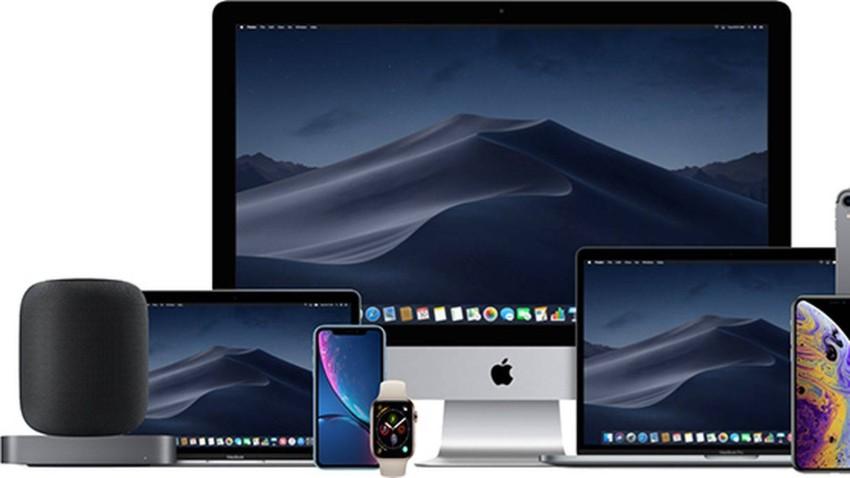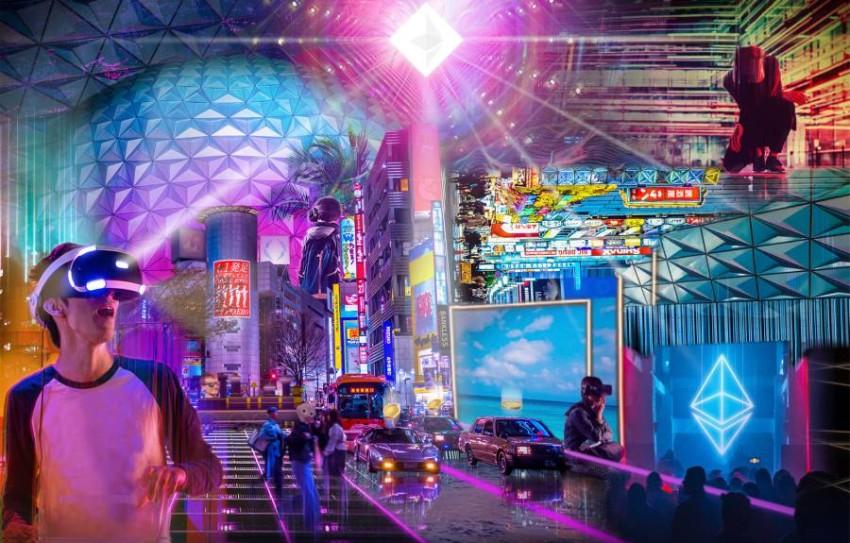Last week, "Apple", the technology giant, revealed a set of plans that confirm its willingness to enter the world of "Metaverse" strongly, according to "Tim Cook", CEO of the company, who confirmed that they are preparing to expand in augmented reality applications, in addition to unreported reports. Official indicates plans to introduce a headset for augmented reality applications this year, to be followed by smart glasses linked to virtual reality.
Before that, Microsoft reviewed the outlines of its immersive virtual world, and its version of “Metaverse”, in front of 250 million users of its “Teems” program for communication and communication. Of course, these ads come after Facebook changed its name to “Meta”, a change that reflects The focus of the social networking platform on the virtual world, and its own vision of what is called the immersive virtual world “Metaverse”.
Did “Apple” deceive iPhone users? .. The court answers Muhammad Ismail, February 5, 2022 Apple reveals the number of active devices globally, Muhammad Ismail, January 29, 2022Companies say that the user will be free to move between the different virtual worlds offered by any company, and he will also be able to create his virtual presence by creating an “avatar” that reflects his real personality, or even a cartoon that represents him, and for employees in the virtual world, this will mean the ability to attend Meetings, hanging out with colleagues, or even visiting the “digital twin” in his real office or workplace.
Despite this optimistic picture, it has not yet been announced which important technical parts of this vision would make this possible, or what conditions would be required in which the Metaverse universe would allow access to an avatar created in another company's universe.
As a first step towards the world of "Metaverse", Microsoft said that the avatar of the real character could appear in meetings that take place through the "Teams" application in the first half of this year, while Jared Spataro, president of "Times", predicted that the traditional chat boxes will be filled in the future. With cartoon characters talking and interacting, users won't feel that something strange is going on.
In contrast to Microsoft's incremental steps, Facebook is jumping straight into virtual reality, with the advent of the open beta version of Horizon Work Rooms, a free app designed to allow employees to collaborate in a virtual office through the use of Oculus headphones. The user is represented by a cartoon avatar whose presence is enhanced by spatial sound technology. Users sitting in the virtual room hear conversations based on where they sit in the virtual shared workspace.
250 million people use Teams applications once a month, compared to 7 million people who use paid Facebook applications for communication programs, so this application is the ideal place to test the new “Metaverse” environment in the field, said Peter Barrett, who invests in New Augmented Reality Technologies Mixing avatars with real faces in virtual meetings is a smart way to start users interacting with their colleagues' cartoons.
However, Bart warns that it does not seem clear for sure whether people will welcome the new form of virtual work, stressing that piling more types of digital interactions on employees after the Corona epidemic period will never be able to compensate for what is lost in human interactions, especially And that employees around the world want to “be with other people.”
In addition, many experts expect that most users will find VR and AR headsets uncomfortable, especially if they are meant to be worn for long periods, which means that the virtual work experience must be exceptional to overcome the burden of equipment that is supposed to be used.


Sarah Roberts, a professor at the University of California, California, tells the Wall Street Journal that users will understand the dimensions of the metavirus world if employees are drawn to the virtual version of the office they leave behind most of the day, and that this will remove the sense of control over their work lives since the beginning of the virus crisis. corona.
Despite the potential problems and obstacles that people face in adopting new ways of working, technology companies use their employees as a way to test Metavirus technologies, especially after a number of them return to work from the office. As for those companies that build meta-virus technologies, applying the technology in the office first has an added advantage as it is an opportunity to create an alternate digital persona that people are likely to use in their wider working lives.
Alec Skipman, who is responsible for artificial intelligence and mixed reality at Microsoft, says that navigating between the different worlds of the Metavirus is like switching between locations in the current Internet world, however, unlike what is happening today, users will want to take advantage of a “digital identity.” » Permanent across various digital devices, where a person will maintain a unified digital ownership no matter how he moves from one virtual reality to another.
Even before metavirus technologies became widespread, warnings of privacy issues began, with the Federal Communications Commission saying that as a place where many people were likely to create new digital identities, Facebook would be able to use these new identifiers. To track users' personal data even if they switch to another "metavirus". “The important thing about this is that the personal avatar of any user who creates digital information is a valuable asset in the 21st century,” says Tom Wheeler, former president of the Brookings Institution. This is not the way the Internet works today.
So far, no clear technical basis has been set for how to connect the different metaverse worlds, and the majority of companies involved in developing these worlds do not talk about methods or standards for building an interoperable world that is open and transparent.
Experts say that navigating between the different “metavirus” worlds requires a tool similar to today’s Internet browsers, and Microsoft took the first step in this field by creating so-called “network threads”, a step taken by the company to block the path of others such as “Facebook”, which is looking to collect A wide range of virtual services together. However, no general technical standard has been established to make it work in a correct and harmonious manner.
Even if the technical standard is agreed upon after a while, other questions will remain about whether any of the competitors will adopt this standard, or open its digital space to others in a realistic way, and experts believe that “Facebook” has a long history of restricting what external developers can do. They do it with its services, and perhaps allowing access to avatars from elsewhere is the lowest level of openness to accept a kind of information exchange between metavirus worlds, though this would be a very limited form of interoperability.
The competition around “Metaverse” does not stop at the limits of the technical elements only, but also goes beyond the idea of setting a firm foot in what constitutes the future of the Internet, and so many other companies that the global user may not know compared to Facebook and Microsoft enter into the race, for example, there are broad plans Which is being prepared by "Tencent", the Chinese social networking and gaming giant, which some experts believe that shaping the digital future may be between two worlds dominated by "meta" and the other by "Tencent".
And the Chinese media monitored that the company registered several brands associated with Metaverse for its QQ social site, although the company did not officially announce its plans in this context, but the company has a strategic partnership with famous gaming platforms such as “Epic Games” and “Rolebox”, and it It owns many mobile payment methods, its offices are distributed in many countries, and it has a huge audience distributed in many sectors. But in the end, the whole thing will depend on the extent to which the Chinese government accepts this and establishes the appropriate regulatory framework for a new world whose close scrutiny will not be removed from the government.
There is also an interesting experiment by the company "Sensorium" owned by the Russian billionaire Mikhail Prokhorov, which is building a virtual world called "Motion World", which is a virtual land with accurate graphics underwater, and the company says that it will be a space for users to activate their minds through meditation and well-being practices. At the same time, the company is working on building another world called "Perism", which it says is dedicated to the performances of the next generation of electronic music artists.
Even in Iceland, a small country, Alden Dynamics, a company specializing in software for the virtual world, builds its virtual world out of the game “Witches’ Waltz”, and says of this world that it is a place where your imagination can be freed to the fullest extent.
